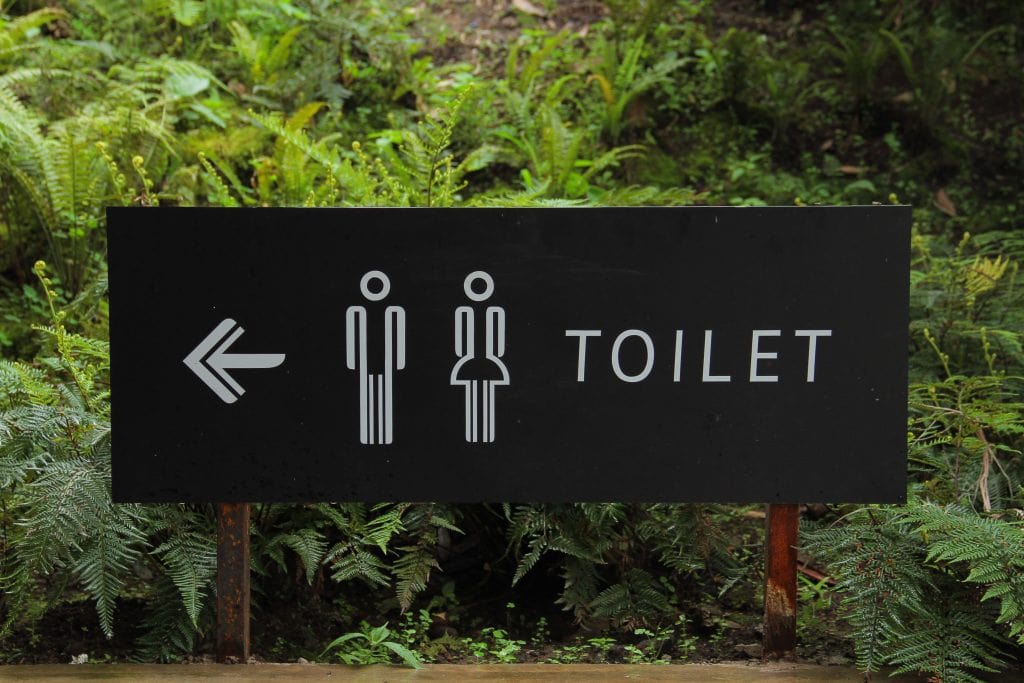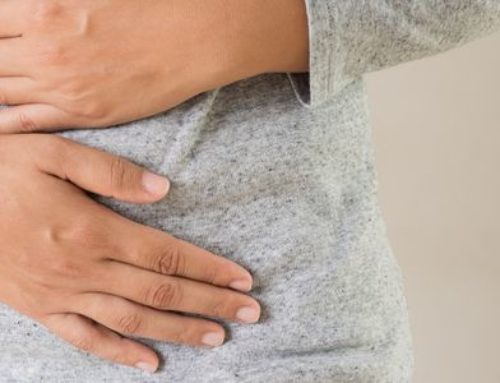
Poo, poop, do-do, stool, bowel movement.
Yes, everybody poops. It’s a wonderful thing. A natural phenomenon.
But what happens when it’s just not happening? When you’re blocked up, obstructed, irregular…. CONSTIPATED!
From time to time everyone experiences feeling a little bit clogged up. It leaves you bloated and uncomfortable. Some people experience it more than others. How do you know when it’s a problem and what can you do when there’s just no movement at the station?
What is constipation?
Constipation is a very common condition in which it becomes difficult to do a poo and poos become less frequent. This can result in abdominal pain and discomfort. Persistent constipation can also lead to faecal impaction and repeated straining to do a poo can result in haemorrhoids.
The number of times a person poops is highly variable and what’s normal for you may not be normal for someone else. Some people go twice or three times a day and others may go three times a week. For this reason there are many definitions for constipation and constipation can mean different things to different people.
The key factors in determining if you are constipated are:
- the frequency of poos
- the consistency of poos
- the difficulty in passing a poo.
How do I know if I am constipated?
The best way to know if you are constipated is to get an idea of what is normal for you. Pay some attention to the number of times that you need to poo. When you go to the toilet make note of whether or not you’re straining to pass a poo or if it arrives without effort. And most importantly, have a look at your poo! It’s a great way to gauge what’s going on internally. Are your poos usually soft and long or are they hard and small? The Healthy Eating Hub’s Food Symptom Journal is a great way to keep track of this information.
Once you start to recognise what is usual for you, it’s easier to notice if you experience any of the following:
- Straining during a poo more than 25% of the time
- Having small, hard poos more than 25% of the time
- Feeling like you need to pass more poo, but nothing is coming out
- Going to the toilet to poo less than 3 times a week
These are signs that you may be constipated.
What should I do about it?
When you are experiencing a bout of constipation there are a few changes you can make to get things moving:
- Drink lots of water. Boosting your fluid intake will help to soften your poos.
- Eat at least 2-3 serves of fruit each day. Fruit is a great source of fibre and pre-biotics which will help to get things moving.
- Go for a 30 minute walk. Moving your body will help with moving your bowels.
- Take your time on the toilet. Try not to strain or push too hard. Allow yourself the time to let your body do what it needs to do. Maybe take a book in with you.
- Try a fibre supplement. While we recommend getting your fibre requirements from whole foods, the short term use of a fibre supplement such as Metamucil or Benefibre may help to relieve a bout of constipation.
Stool Softeners and Laxatives
There are a several over the counter medications that can help to relieve constipation through softening your poo or relaxing your intestines to help the poo move through. However, regular use of laxatives can weaken the intestinal muscles and increase the risk of constipation over time. It’s best to avoid using these medications through prevention of constipation and the above treatment strategies.
How do I prevent it happening?
The best way to prevent constipation is to address the causes. What are the causes I hear you ask? Constipation is caused by:
Not enough fluid
Water is so important for keeping your body hydrated and keeping your poos soft. Your body absorbs fluid from your intestines and if you are dehydrated your body will absorb as much as it can from your poo, leaving it hard and difficult to pass.
Aim to drink approximately 2 litres of water a day. Take a water bottle with you or have a jug of water at your desk. Have a glass of water with every meal and you are 1/3 of the way there already. Check out our article on hydration for more ideas. You might like to try making some infused water jugs if you find plain water a little boring.
Not enough fibre
Fibre is the indigestible parts of plant foods. Even though we don’t absorb it, fibre plays an important role in our health. Fibre feeds the good bacteria in our gut, draws water into your poo, softens your poo and helps your poo to move the your intestines at the right pace.
It is recommended that you aim for 30g of fibre per day and you can achieve this by having:
2 serves of fruit a day
1/2 a plate of vegetables at lunch and dinner
Using whole meal and multigrain products
Having a high fibre breakfast cereal
Including beans and legumes several days a week.
A dietitian or nutritionist can help you determine if you are getting enough fibre and help you to develop simple strategies to meet your fibre needs. You might like to check out our article: Are you eating enough fibre? for more information.
Not enough physical activity
Moving around uses the muscles in our arms and legs but it also helps to stimulate the muscles in your intestines which churn and move your poo through your system. Regular exercise can help to prevent constipation.
Aim for at least 30 minutes of physical activity on 5 days a week. Even getting up and walking around your workplace every hour will help to stimulate your gut.
Not going to the toilet
Do you avoid going to the toilet and suppress the urge to poo? Resisting the need to go to the toilet means that your poo is sitting in your intestine for a longer period of time. This results in more time for water to be absorbed from your poo, making it hard and difficult to pass. Regularly ignoring the need to do a poo may also make you less able to sense the normal signals to do a poo.
Stress and depression
Your brain and your nervous system are highly connected to your intestinal tract. For some people, increased levels of stress or persistent low mood will disrupt the signals from the brain to the intestinal muscles which can prevent poo from being pushed along the intestines and out of the body. What’s more, when you are stressed or feeling really down you are less likely to be active or to eat a high fibre diet which can increase the risk of constipation.
Include some self care and stress reducing practices in your day-to-day life such as meditation and mindfulness.
Medications
There are several medications and supplements that can slow down the passage of your poo out of your body. These include opioid pain killers like ibuprofen and codeine, antidepressants and iron supplements.
If you are concerned that your medicines are effecting your poos it’s best to talk to your GP.
What if it keeps happening?
If you are feeling constipated on a regular basis it is important to speak to your doctor to rule out any structural or physiological causes for constantly getting blocked up. Your doctor may adjust medications that you are taking or investigate any hormonal causes for your ongoing constipation. Once these things have been addressed it can be helpful to speak to one of The Healthy Eating Clinic’s dietitians to ensure that you are meeting your fluid, fibre needs as well as looking at the use of pre and probiotics.



